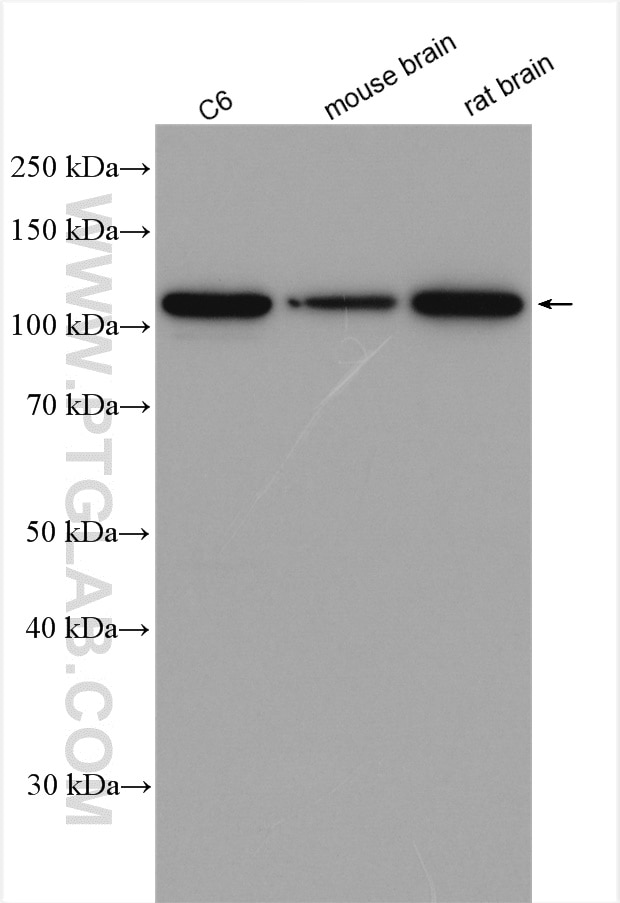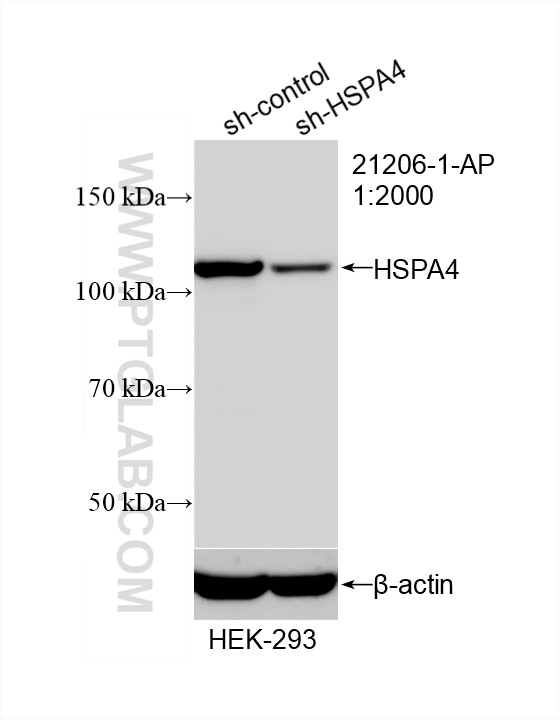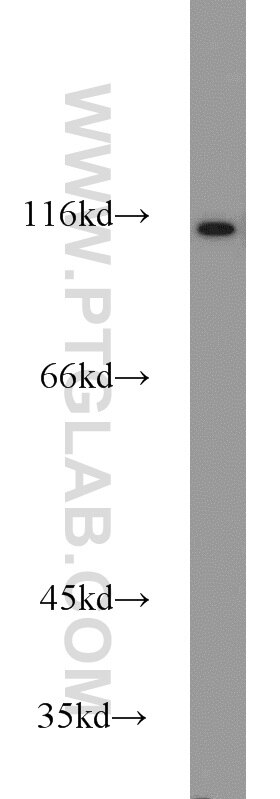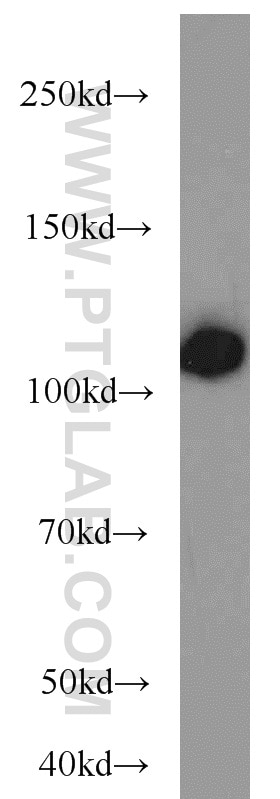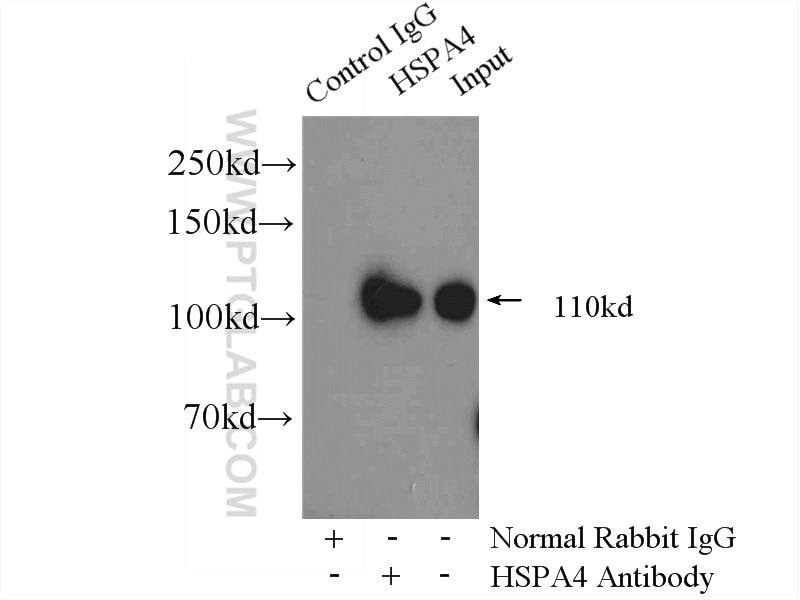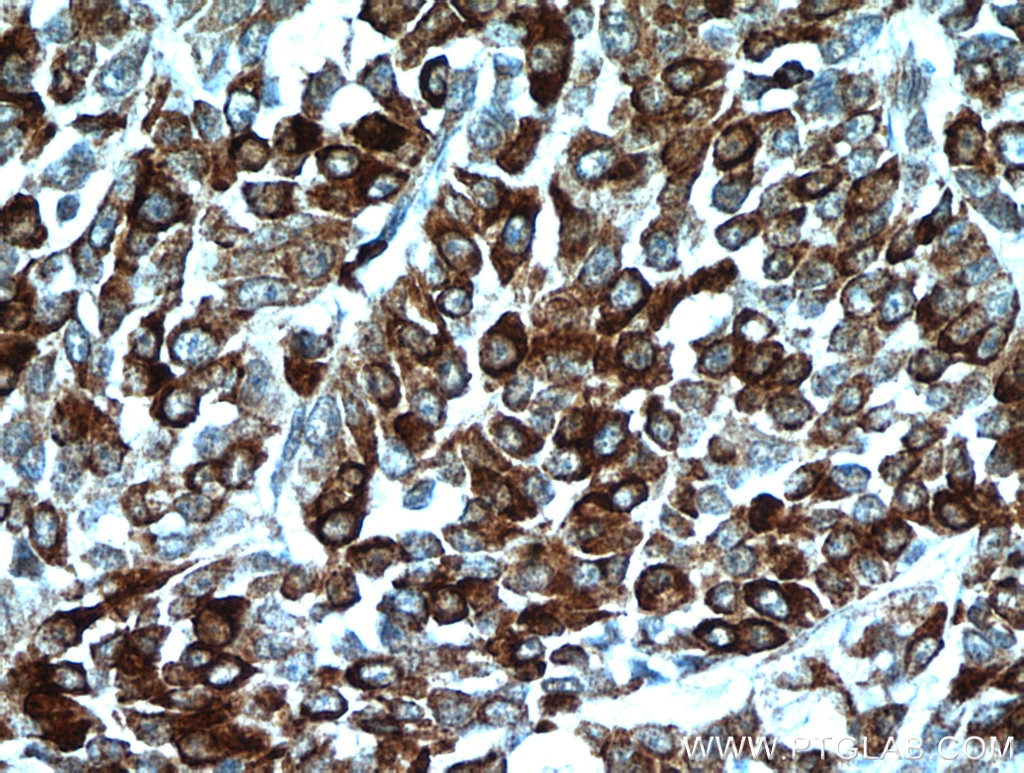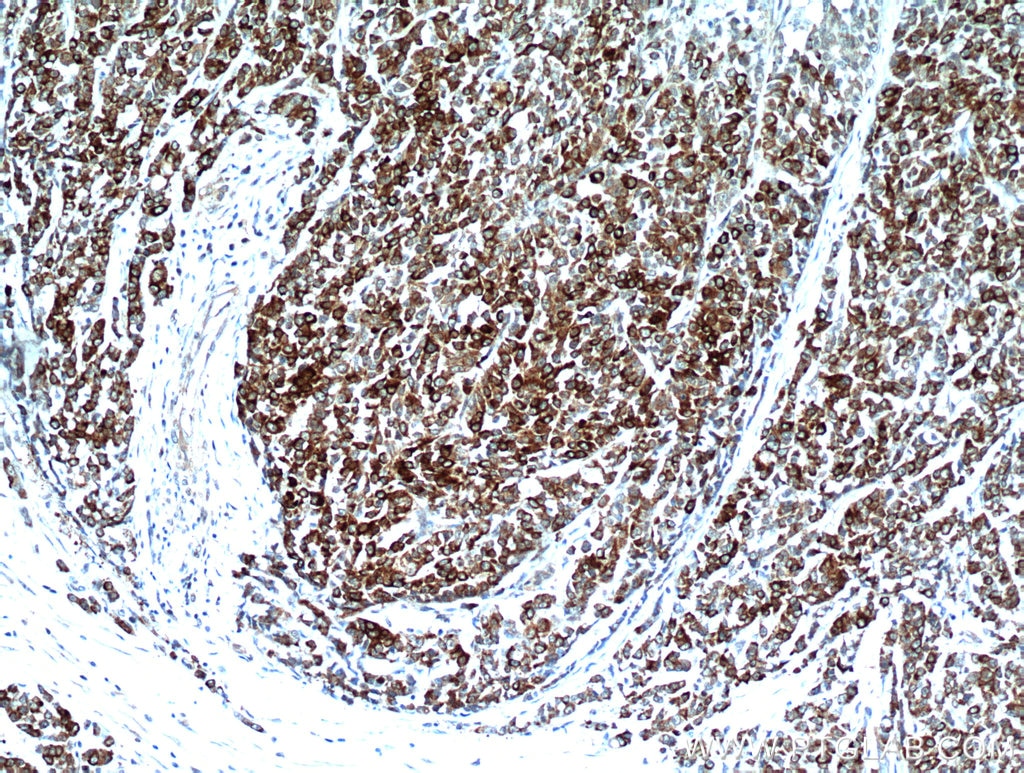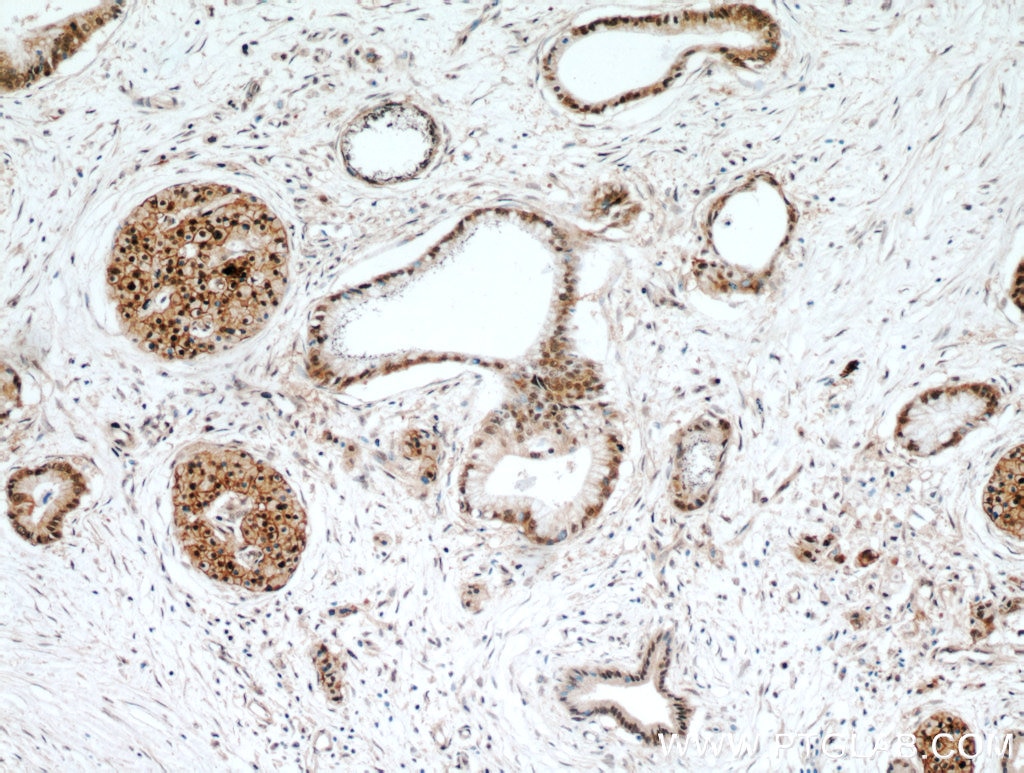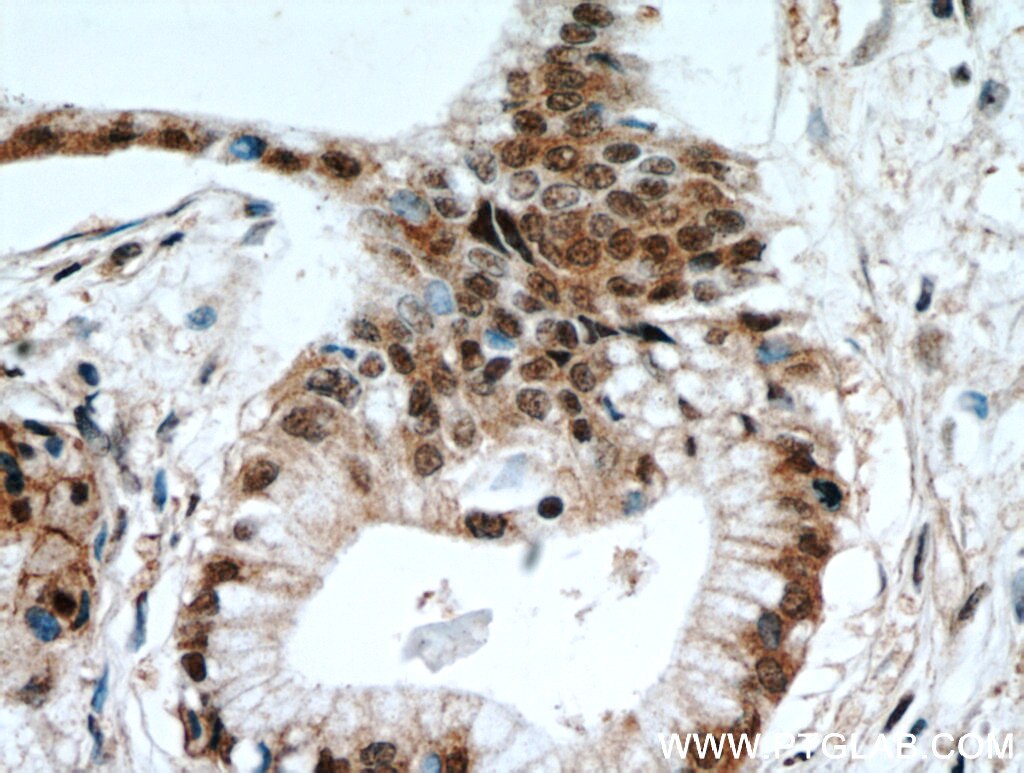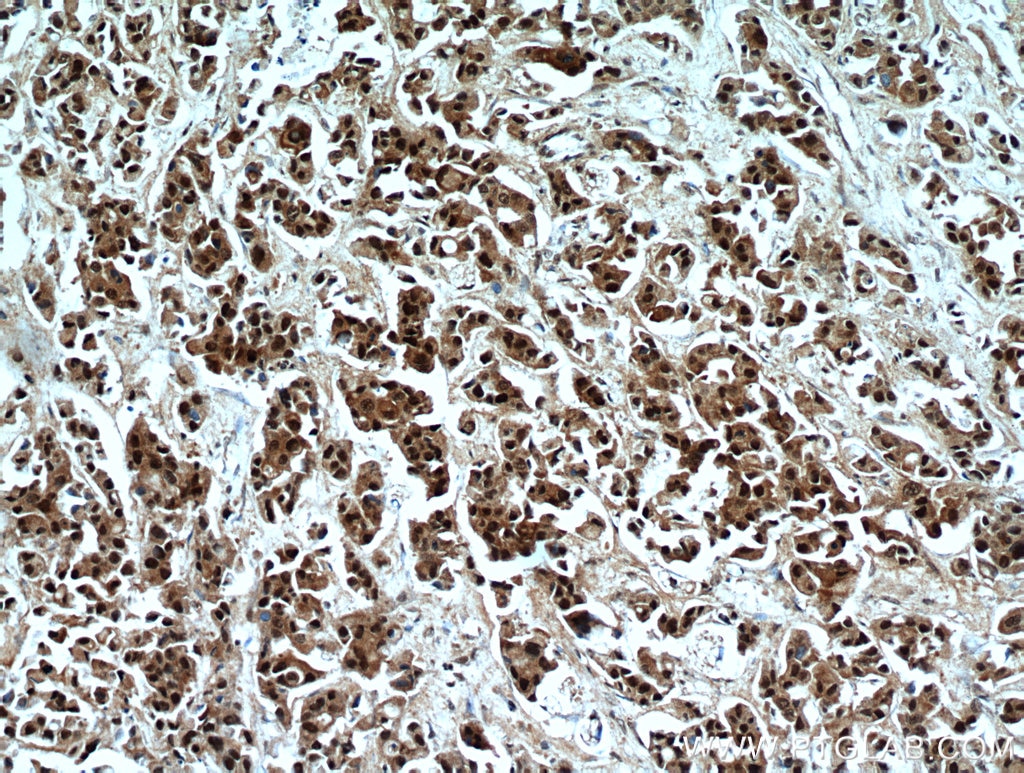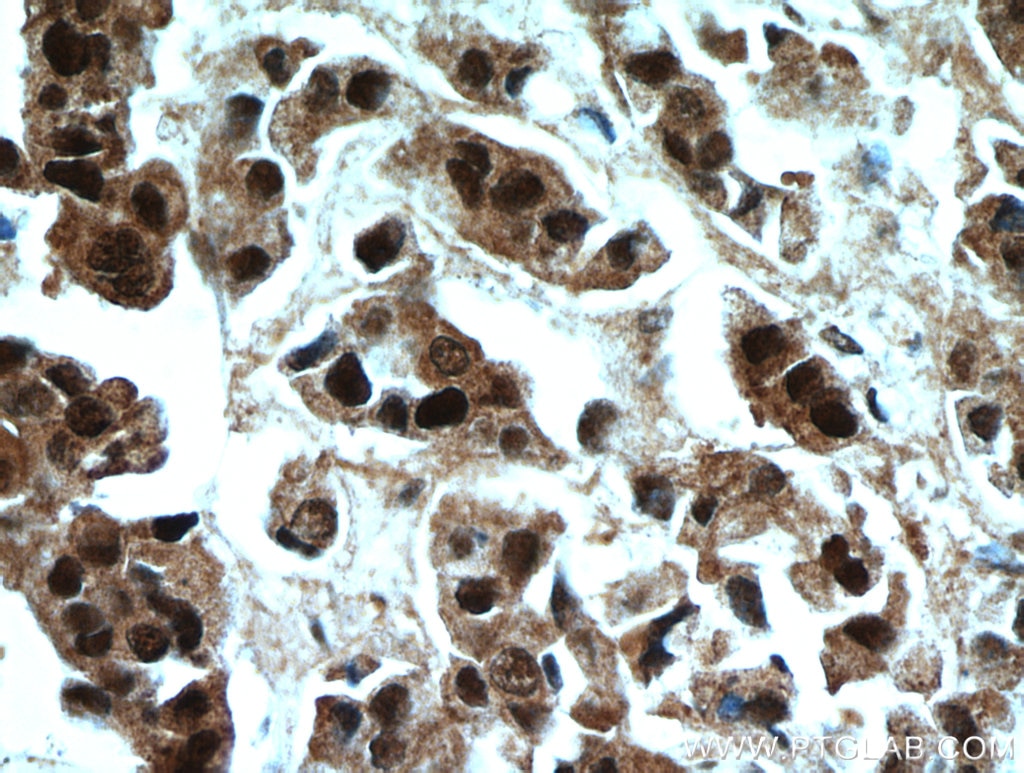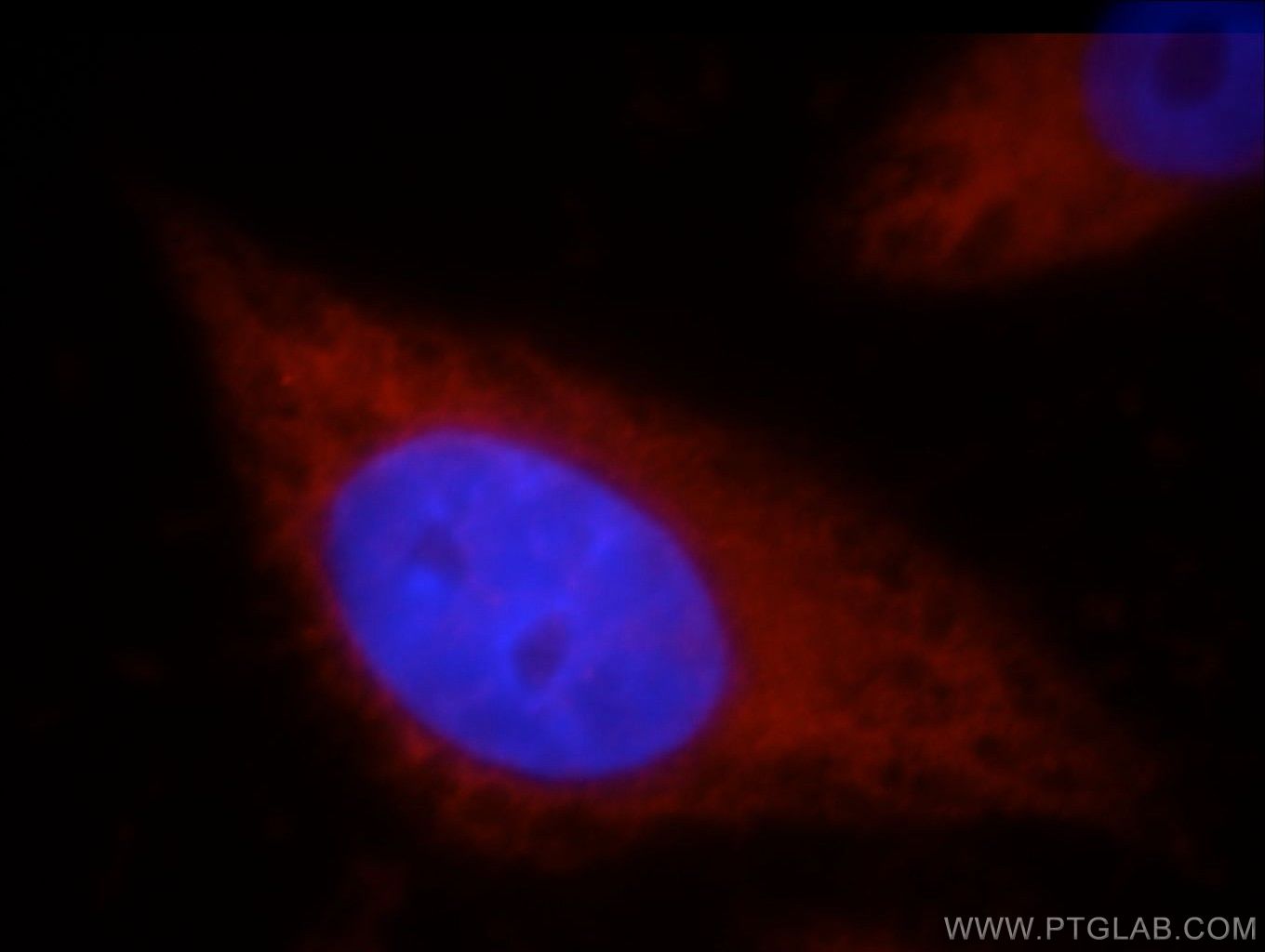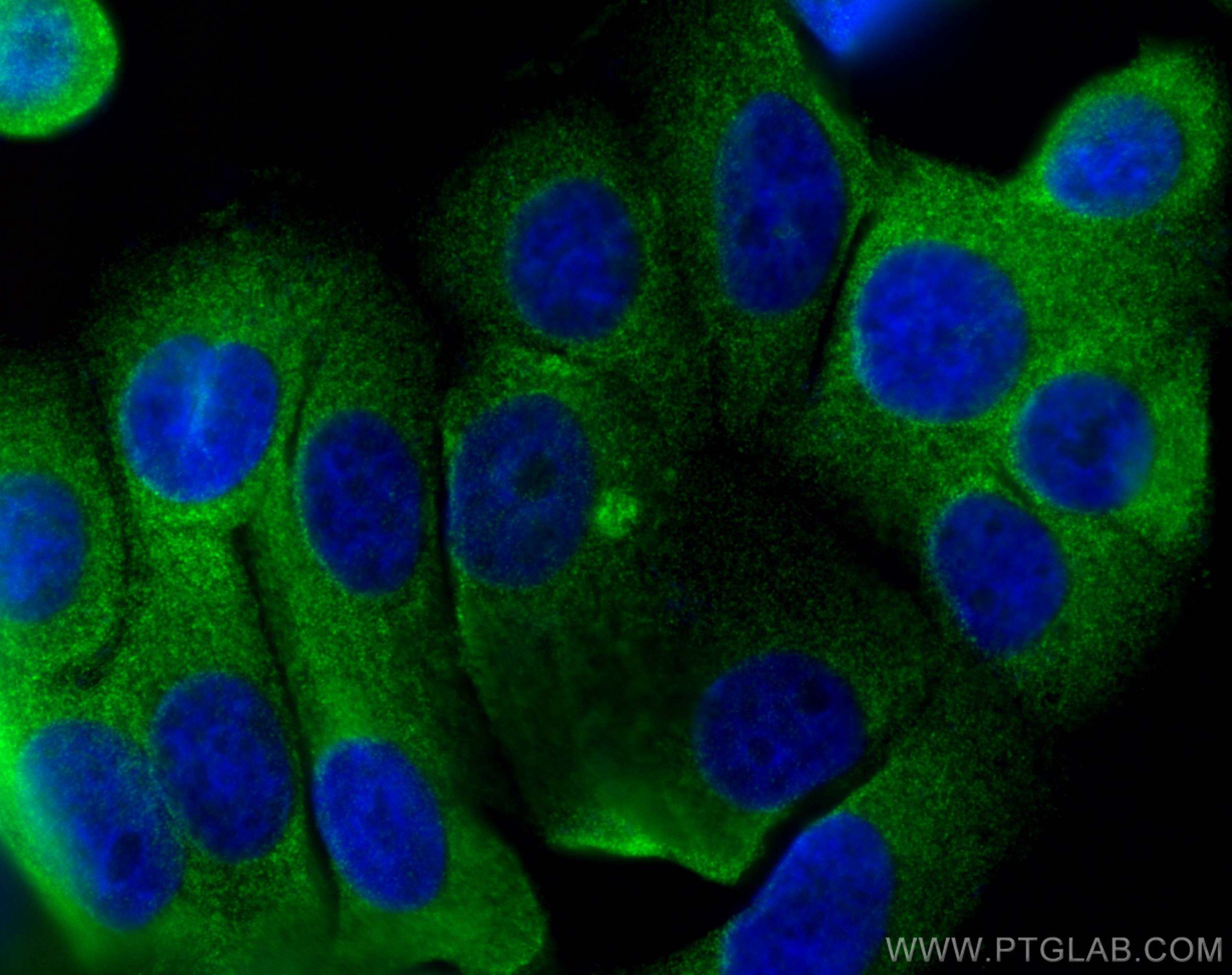- Phare
- Validé par KD/KO
Anticorps Polyclonal de lapin anti-HSPA4
HSPA4 Polyclonal Antibody for WB, IP, IF, IHC, ELISA
Hôte / Isotype
Lapin / IgG
Réactivité testée
Humain, rat, singe, souris
Applications
WB, IHC, IF/ICC, IP, ELISA
Conjugaison
Non conjugué
N° de cat : 21206-1-AP
Synonymes
Galerie de données de validation
Applications testées
| Résultats positifs en WB | cellules C6, cellules HEK-293, cellules NIH/3T3, tissu cérébral de rat, tissu cérébral de souris, tissu testiculaire de souris |
| Résultats positifs en IP | tissu cérébral de souris |
| Résultats positifs en IHC | tissu de cancer du côlon humain, tissu de cancer du pancréas humain, tissu de cancer du sein humain il est suggéré de démasquer l'antigène avec un tampon de TE buffer pH 9.0; (*) À défaut, 'le démasquage de l'antigène peut être 'effectué avec un tampon citrate pH 6,0. |
| Résultats positifs en IF/ICC | cellules MCF-7, cellules HepG2 |
Dilution recommandée
| Application | Dilution |
|---|---|
| Western Blot (WB) | WB : 1:500-1:2000 |
| Immunoprécipitation (IP) | IP : 0.5-4.0 ug for 1.0-3.0 mg of total protein lysate |
| Immunohistochimie (IHC) | IHC : 1:20-1:200 |
| Immunofluorescence (IF)/ICC | IF/ICC : 1:50-1:500 |
| It is recommended that this reagent should be titrated in each testing system to obtain optimal results. | |
| Sample-dependent, check data in validation data gallery | |
Applications publiées
| WB | See 3 publications below |
| ELISA | See 1 publications below |
Informations sur le produit
21206-1-AP cible HSPA4 dans les applications de WB, IHC, IF/ICC, IP, ELISA et montre une réactivité avec des échantillons Humain, rat, singe, souris
| Réactivité | Humain, rat, singe, souris |
| Réactivité citée | Humain, souris |
| Hôte / Isotype | Lapin / IgG |
| Clonalité | Polyclonal |
| Type | Anticorps |
| Immunogène | HSPA4 Protéine recombinante Ag15581 |
| Nom complet | heat shock 70kDa protein 4 |
| Masse moléculaire calculée | 840 aa, 94 kDa |
| Poids moléculaire observé | 110 kDa |
| Numéro d’acquisition GenBank | BC110861 |
| Symbole du gène | HSPA4 |
| Identification du gène (NCBI) | 3308 |
| Conjugaison | Non conjugué |
| Forme | Liquide |
| Méthode de purification | Purification par affinité contre l'antigène |
| Tampon de stockage | PBS avec azoture de sodium à 0,02 % et glycérol à 50 % pH 7,3 |
| Conditions de stockage | Stocker à -20°C. Stable pendant un an après l'expédition. L'aliquotage n'est pas nécessaire pour le stockage à -20oC Les 20ul contiennent 0,1% de BSA. |
Informations générales
HSPA4 (also known as Apg-2, HSP70RY) is a 110 kDa cytosolic protein, a member of the heat-shock protein 110 (HSP110) subfamily of HSP70 proteins which are highly conserved chaperons implicated in protein folding, protein refolding, protein transport, and protein targeting. HSPA4 is ubiquitously expressed and its expression is not heat inducible. Overexpression of HSPA4 has been reported in some leukemia and solid tumors. This antibody well recognized the endogenous HSPA4 protein in mouse brain/ testis tissues. (PMID: 21487003)
Protocole
| Product Specific Protocols | |
|---|---|
| WB protocol for HSPA4 antibody 21206-1-AP | Download protocol |
| IHC protocol for HSPA4 antibody 21206-1-AP | Download protocol |
| IF protocol for HSPA4 antibody 21206-1-AP | Download protocol |
| IP protocol for HSPA4 antibody 21206-1-AP | Download protocol |
| Standard Protocols | |
|---|---|
| Click here to view our Standard Protocols |
Publications
| Species | Application | Title |
|---|---|---|
Int J Biochem Cell Biol Folate deprivation induces cell cycle arrest at G0/G1 phase and apoptosis in hippocampal neuron cells through down-regulation of IGF-1 signaling pathway. | ||
Int J Med Sci Exercise combined with trimetazidine improves anti-fatal stress capacity through enhancing autophagy and heat shock protein 70 of myocardium in mice. | ||
Mol Cell Proteomics A new cellular interactome of SARS-CoV-2 nucleocapsid protein and its biological implications |
